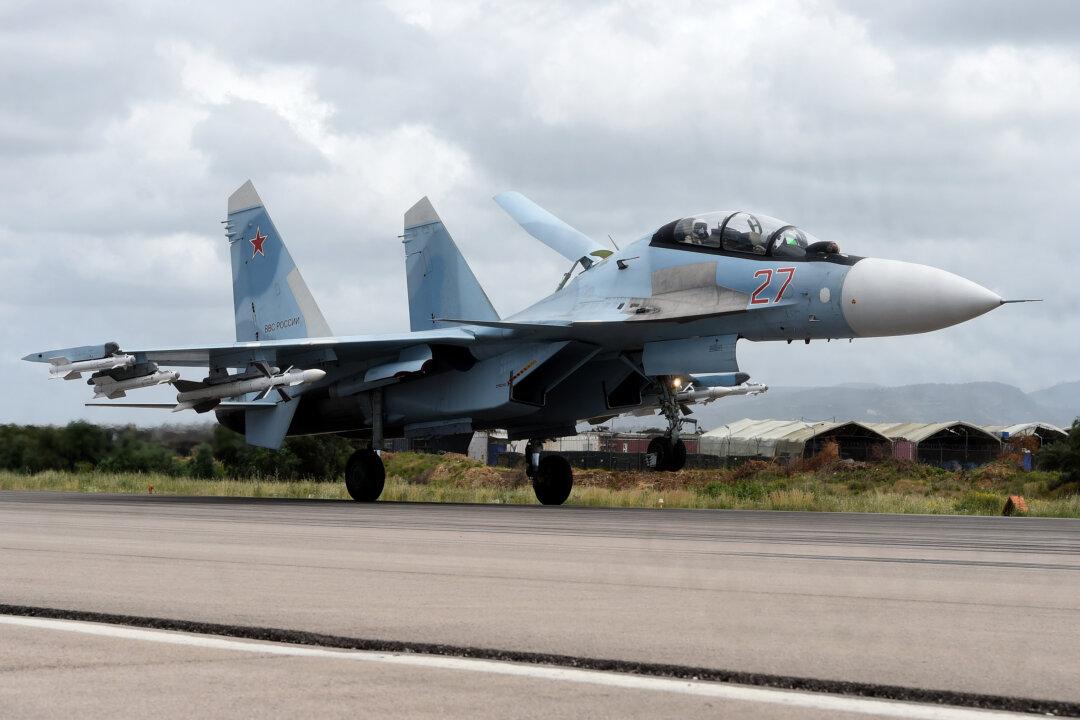News Analysis
Last week, the U.S. State Department announced rare sanctions against a Chinese military department and the department’s commanding general.
Their misdeed was violating a 2017 U.S. law, the Countering America’s Adversaries Through Sanctions Act (CAATSA), which was enacted to punish Russia for meddling in U.S. elections, aggression in Ukraine, and involvement in Syria’s civil war. Any corporation or individual found to be doing business with any of an extensive list of entities closely associated with Russian defense or intelligence sectors can be subject to penalties under the sanctions.
As such, China’s Equipment Development Department, a branch of the military responsible for weapons procurement, and its director, Lt. Gen. Li Shangfu, were found to have purchased military equipment from an entity on the blacklist: Rosoboronexport, Russia’s main arms exporter.
China purchased 10 SU-35 combat aircraft in December 2017 and an S-400 surface-to-air missile system-related equipment in January 2018, according to the U.S. State Department.
The sanctions, announced on Sept. 20, banned Li and the agency from conducting any monetary transactions within the jurisdiction of the United States; Li also will be blocked from accessing any property or assets in the United States, in addition to being banned from obtaining a visa.
State Department officials have insisted that the sanctions were aimed at Moscow, not Beijing. But the implications for China are significant.
The sanctions indicate to Beijing that the United States is willing to punish high-level officials and freeze their assets in the U.S. if they break the rules.
Top officials in China are notorious for funneling their amassed wealth—almost undoubtedly obtained through corrupt means—overseas to avoid detection by Communist Party authorities. Severing their access to U.S.-linked assets, therefore, hits them where it hurts. Such a move is more detrimental to the Chinese regime than trade tariffs, which primarily affect consumers.
The regime’s angry reaction to the sanctions seems to suggest the United States’ move is beginning to have an effect. On Sept. 22, China summoned the U.S. ambassador in Beijing, Terry Branstad, to lodge “stern representations,” the foreign ministry said.
Then, China’s defense ministry said in a statement that it would recall Chinese navy chief Shen Jinlong from a visit to the United States and postpone planned talks in Beijing between Chinese and U.S. military officials that had been set for next week.
The defense ministry added that the Chinese military reserves the right to take further countermeasures, without providing further details.
The most recent sanctions follow other U.S. punishments of Chinese entities. On Sept. 14, the U.S. Treasury announced sanctions against web design and app-development companies in China that are owned and managed by North Koreans.
Earlier this year, U.S. officials considered blacklisting two of China’s biggest banks for doing business with North Korea, according to an April 13 Bloomberg report. But the idea was abandoned because of concern about the potential effects of such a sanction on the global financial system.
Last November, the Treasury Department instead cut off the smaller Bank of Dandong from accessing the U.S. financial system, as punishment for engaging in money laundering for North Korea.
Reuters contributed to this report.





